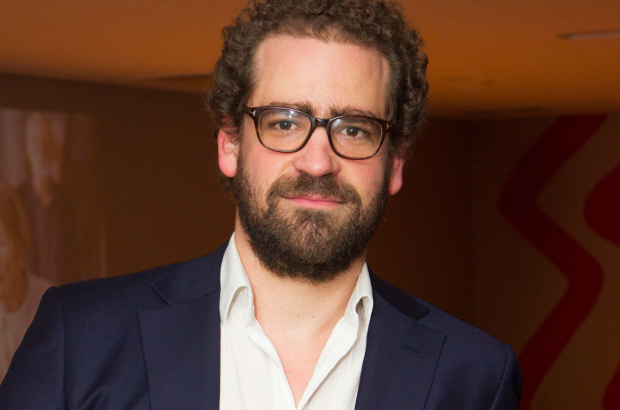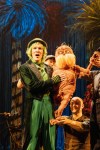And Introducing…Max Webster: the director who takes on everything from Seuss to Shakespeare
In his series shining a light on emerging theatremakers, Matt Trueman talks to a director who is not afraid to turn his hand to a surprising variety of things

© Dan Wooller for WhatsOnStage
Max Webster likes a challenge. Whether it's giant peaches, dying bears or tree-hugging, moustachioed critters like The Lorax, he's a director who gravitates towards fantastical things. He sped through 300 years of history in Virginia Woolf's Orlando at the Royal Exchange, and sat the full five hours of Ingmar Bergman's film Fanny and Alexander in the Old Vic. "Increasingly," he muses, on a mid-rehearsal break, "I choose things that are just impossible to stage."
That, more than anything, defines Webster's work, and such audacity enforces full-blown theatricality. How do you put deforestation onstage, or oil slicks and sailing ships? The only answer is with imagination, and Webster has it in spades.
Webster's theatre has a singular sense of the carnivalesque
If he has a style, it can be hard to spot. His signature is a wilful eclecticism, both in the stories he tells and the way that he tells them. Roald Dahl rubs shoulders with Tolstoy's Anna Karenina on his CV; Doctor Seuss and Friedrich Schiller make the strangest of bedfellows. To that wide-ranging selection of writers, Webster brings puppetry, physical theatre and pageantry. That last one is central: a lot of his shows seem somehow to process. It's a costume thing. Music, as well. Webster's theatre has a singular sense of the carnivalesque.
Blame Nicholas Hytner – unlikely as it sounds. The two directors couldn't be more different, but it was his National Theatre, certainly early on, that shifted Webster's sense of the art-form. Many artists my age say the same thing: shows by Complicite, Kneehigh and Katie Mitchell, all on the South Bank and all on the cheap, opened a generation's eyes to fresh possibilities. "I had no idea how that work had been made," he recalls, "but it gave me a sense of what theatre can be: a visual medium as much as a spoken one." Within a few years, he skipped of to Paris to train at Lecoq.
That, perhaps, makes Webster an unlikely Shakespearean: Lecoq's total theatre tends to give text the wide berth. But in recent years, he's gotten to grips with the Bard – and with an approach unlike anyone else. His Winter's Tale, in a Scots translation, sat a la-di-da Christmas next to a celtic spring to explore Scottish identity. Stepping in to save King Lear, with another director unwell, he refocused a play about aging through the prism of its young.
'There's a really big question about how we do Shakespeare in this country right now,' he says
This week, he opens a rain-soaked As You Like It on a flooded outdoor stage in Regent's Park. "There's a zany logic to it," he says. "It's like sketch comedy sometimes, but with some of the most complicated scenes about falling in love in the English canon. That contrast of style and tone is key."
What Webster does as well as anyone is let Shakespeare's plays pull in different directions. Rather than coherence, squishing them into a concept, he embraces their spillage and their contradictions. "Shakespeare's a model for broad, kaleidoscopic, socially diverse open theatre," he says. "His plays move from sketch comedy to psychological inquisition and include music, jokes, poetry and political critique. It's my idea of a rumble-tumble evening."
That approach feels completely contemporary, mixing of the populism of Emma Rice's Globe with the rigourous reality Hytner brought to the plays. Between the two, he sees a gap. "There's a really big question about how we do Shakespeare in this country right now." Where, previously, certain institutions have led the way – the RSC, for decades, or the NT – the field feels open, waiting for a step-change. The radicalism of Webster's way lies in refusing singularity, but then, he says, Shakespeare did the same. He likens his plays to "the invention of colour TV, where previous plays were in black and white." You can see Shakespeare routinely parodying them. "His plays came out of a huge epoch shift. England was going through changes that were unheard of, perhaps until centuries later." Everything, in other words, was up for grabs – as, perhaps, it is once again.

















